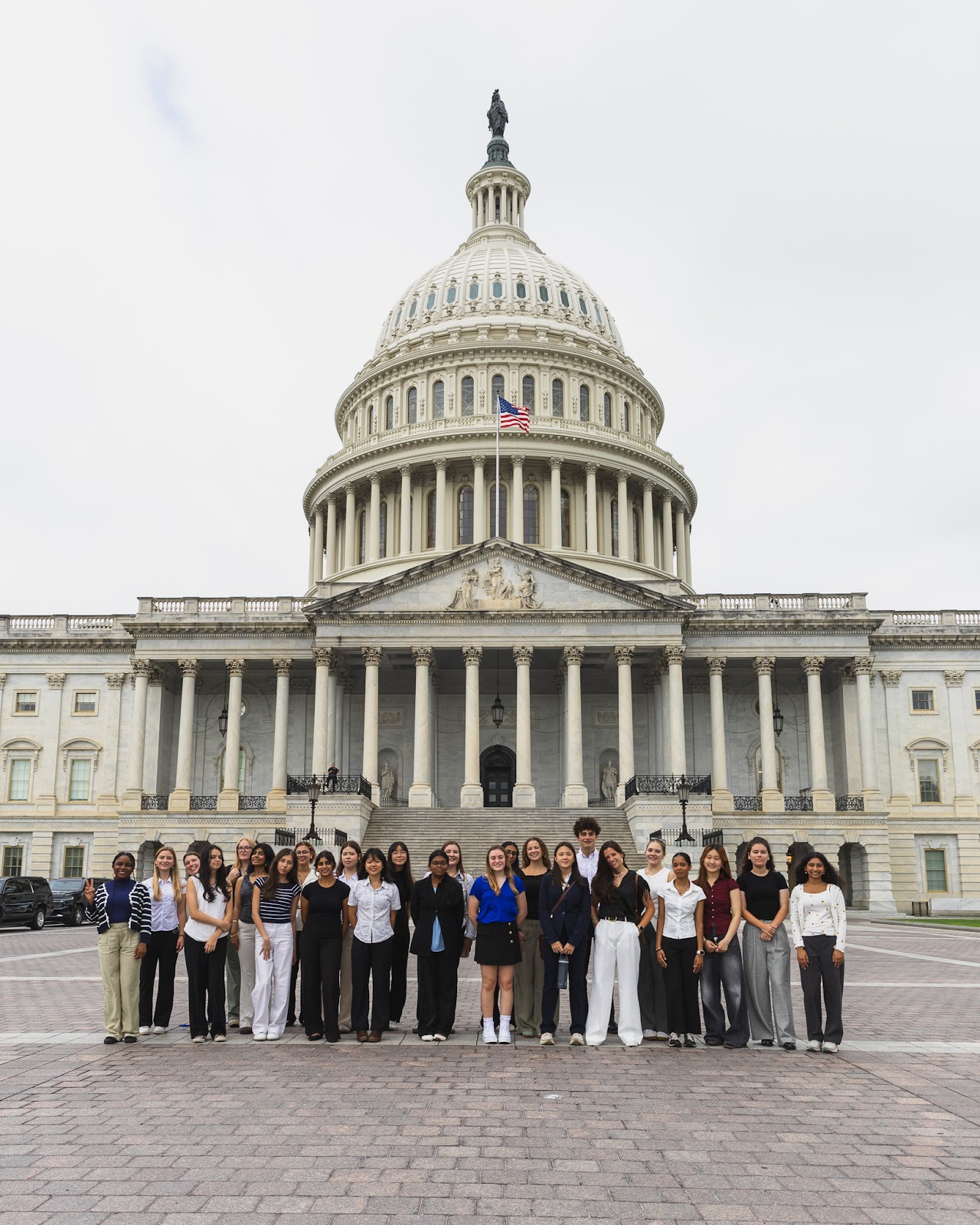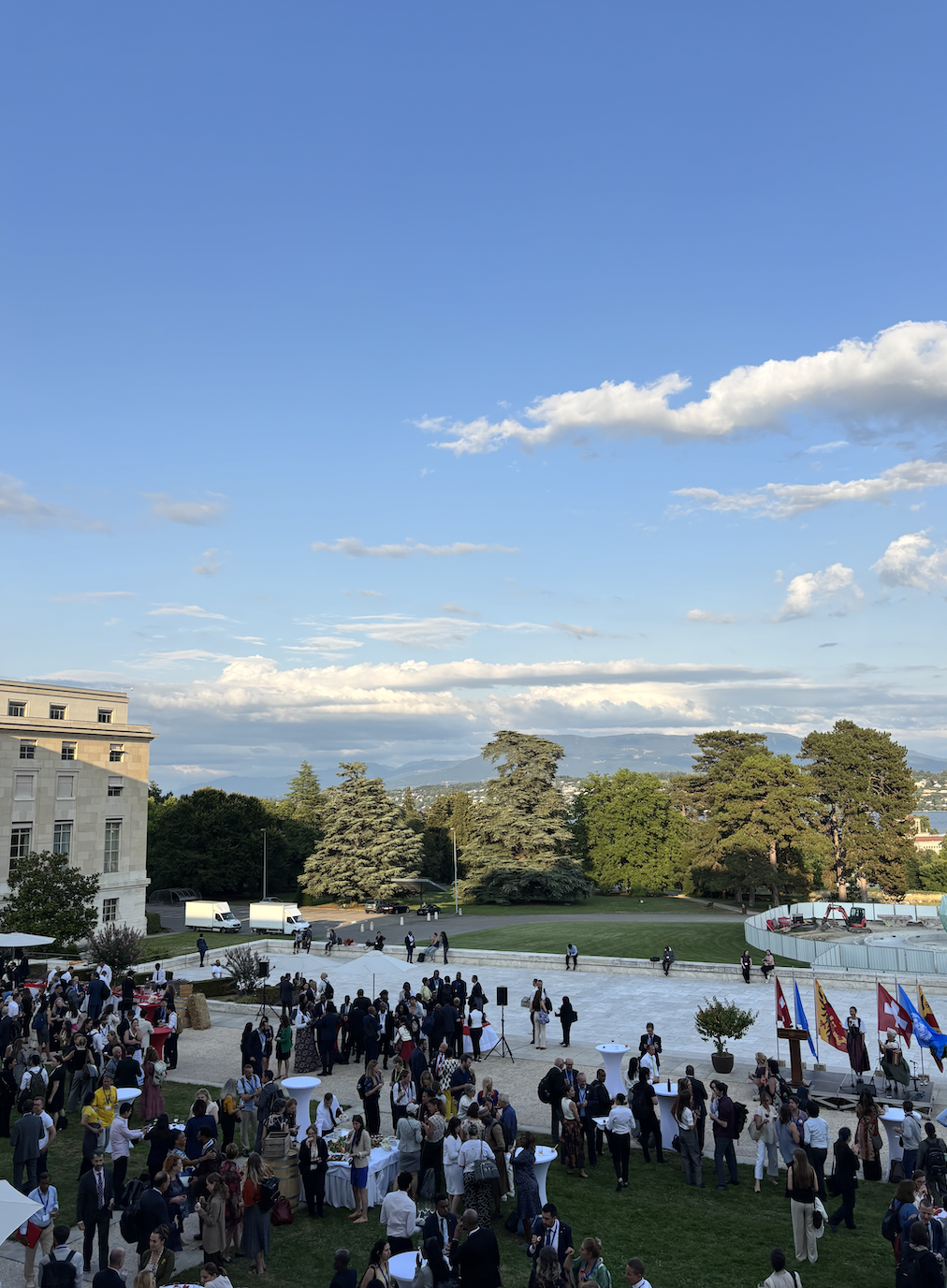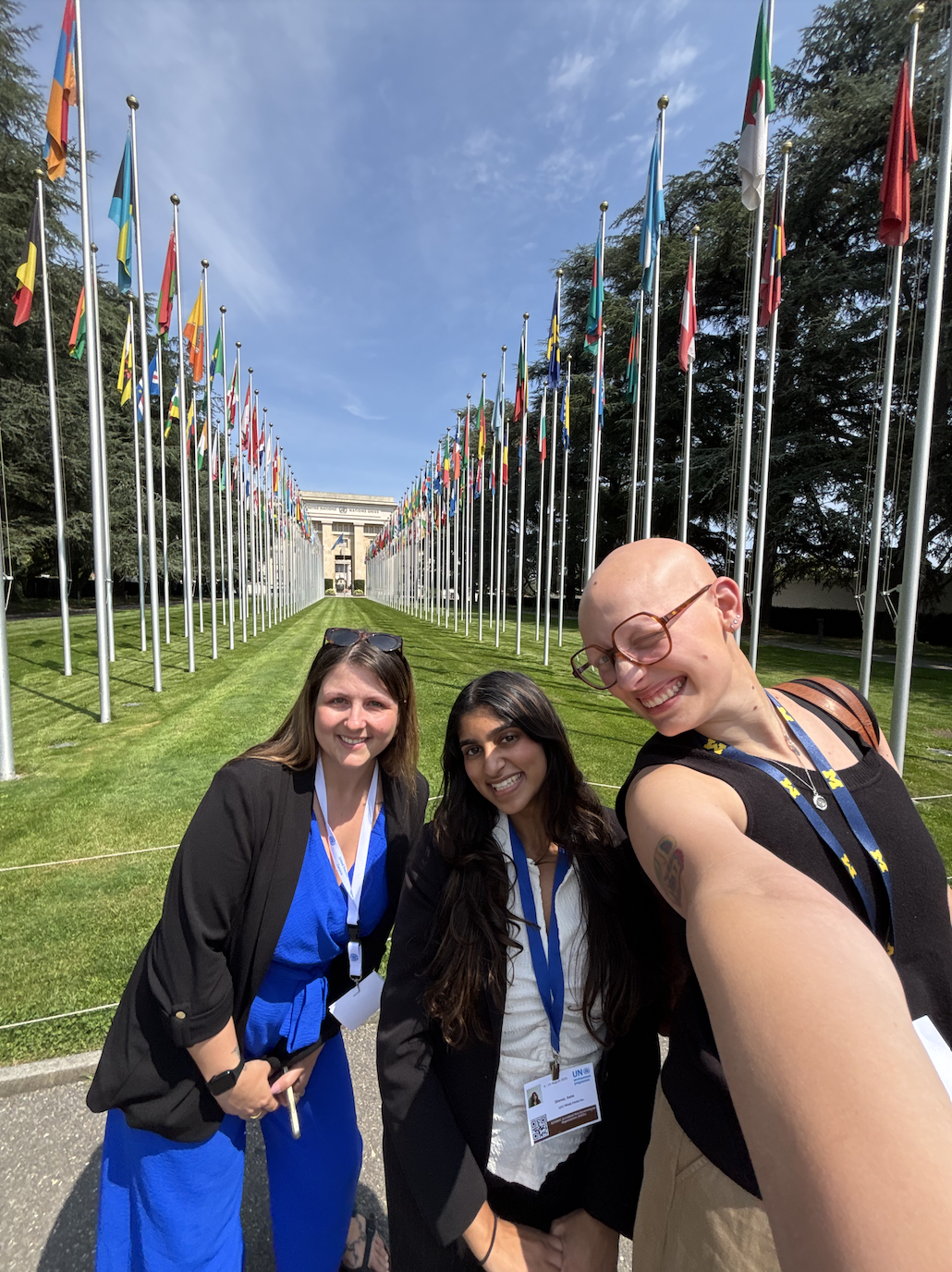Youth Voices in Power: Fighting Plastic Pollution from Congress to the U.N.
This blog post was written by Aana Shenai, a 2024/2025 Marine Plastics Ambassador.
Over the course of one month, I had the opportunity to advocate for plastic pollution policy at a federal and international level. In July, I spent a week in Washington D.C. with my fellow 2025 Marine Plastics Ambassadors to advocate for policy on The Hill. The week included an advocacy workshop with policy experts and a full day of lobbying for policy around single-use plastics, protecting communities most impacted by pollution, and Extended Producer Responsibility (EPR).

EarthEcho 2025 Marine Plastics Ambassadors in Washington D.C. for a lobby day on The Hill! The ambassadors had 20 meetings with elected officials and/or congressional staff.
Environmental policy is heavily polarized at the federal level. This meant meetings with congressional staffers differed based on the political party of the elected official. Having these conversations taught me that many people struggle to see the importance of plastic pollution policy as a solely environmental issue. Still, discussing shared values like a strong economy, clean coastlines and safe drinking water can create a meaningful connection and encourage those with opposing views to consider policy change. Talking about EPR as a long-term solution can show others the potential policy can have to create systemic change.
Just two weeks later, I traveled from Chicago to Geneva, Switzerland as a member of EarthEcho’s INC 5.2 delegation to advocate for youth priorities on a global stage. While we only had a few days at INC 5.2, listening to negotiations for the first time (just a few hours after we landed in Geneva) was a preview of what the rest of the conference would entail. One by one, delegates go through each article in the treaty text and make suggestions (and, if they feel strongly, suggest a new or edited version of an article to adopt instead of what the chair has written). Just like anyone who has worked in a group project on a shared document would know, this process is long and exhausting, with several hours spent wordsmithing and back and forth debate.

Day 1 at INC 5.2 in Geneva! The welcome reception took place outside and offered a chance to make connections with other conference attendees.
What I learned from both very different experiences was the same: young people have the knowledge and expertise to participate in policy discussions, the youth perspective intersects with that of other marginalized groups, and people in positions of power are valuing this perspective more and more.
Attending INC 5.2 felt like learning a new language over the course of a few days. Deciphering treaty language, understanding the implications of what a seemingly small suggestion could have, and reading between the lines, was like memorizing new vocabulary and understanding the tone and implications of certain words over others. Similar to anyone learning a new language, the first few times reading and listening in it can be overwhelming, but intense practice (and learning through immersion) can help you in your journey to becoming fluent.
After spending a total of 25 hours inside the UN and listening to almost 12 hours of actual negotiations, I feel semi-fluent; I am not at the level of a native speaker, but I know enough to contribute in discussions, and more importantly, to teach others what I know.

Ryann, Aana and Sam exploring the Palais des Nations venue! The Alley of Flags features flags from each UN member state and the UN flag itself.
For me, that was always the goal, from the moment I learned about the possibility of attending INC 5.2. Was I hoping to see consensus on the treaty text? Yes, but I was more excited to learn about how negotiations happen at an international level. Young people are already doing hands-on work to reduce plastic pollution—what they need is a seat at the table. What happens at the UN is important, but not anymore than a local plastic reduction project. Failing to reach a consensus on the Global Plastics Treaty was disappointing for many, but surprising to only a few. Now is the time to continue working at whatever level you can—for me, that means working on a local policy campaign in my state and supporting my fellow Marine Plastics Ambassadors in their work.
